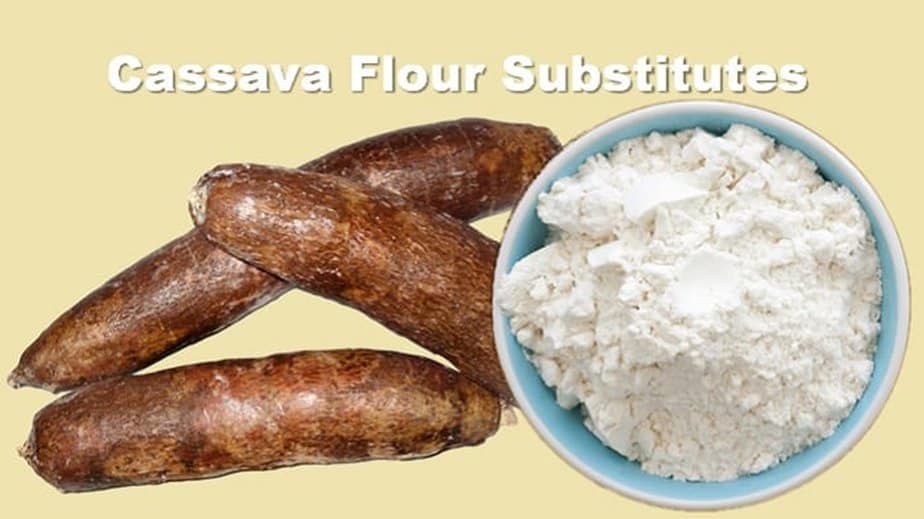Are you looking for a cassava flour substitute? We have them here.
Cassava flour is preferred for gluten-free, nut-free, grain-free baking and cooking.
For people who care about gluten-free foods, cassava is a healthy choice. But some may not like it because of taste or for some health reasons.
Fortunately, there are a few healthy replacements for cassava flour. Most of these substitutes are gluten-free and rich in vitamins and minerals.
If you have a gluten intolerance issue, you must check out the gluten content of the substitutes for cassava flour.
What is cassava flour?
The cassava plant is a staple crop to millions of farmers in South America and some parts of Asia and Africa. It is also popularly known as Brazilian arrowroot.
This plant grows thick roots and a starchy, high-carbohydrate tuber, similar to yam.
The roots of this plant are dried and ground to make cassava flour.
Some of the main features of cassava flour may include:
- It’s gluten-free, grain-free, and nut-free flour.
- This flour differs from tapioca flour though both are from the same plant.
- It isn’t poisonous as cyanide compounds in raw cassava disappear while processing the flour.
- Contains a high amount of carbohydrates, for it comes from a starchy tuber
- This flour is most similar to wheat flour, with a soft and powdery texture.
Cassava nutrition and flavor
The nutritional profile of 1 cup of raw cassava is as follows:
- Calories:
- Protein: 8 grams (g)
- Carbohydrate: 4 g.
- Fiber: 7 g.
- Magnesium: 0 mg.
- Potassium: 0 mg.
- Vitamin C: 4 mg.
- Calcium: 0 milligrams (mg)
The starchy flesh of the cassava is a light white or cream color with a texture similar to yam or potatoes.
This root has a mild, sweet, and somewhat nutty taste. However, some varieties of cassava may taste mildly sweet or bitter. When the raw cassava is dried and processed into flour, it tastes quite bland.
10 Best Cassava Flour Substitutes
Cassava flour is a good recipe ingredient for those who are intolerant to gluten. It also fits those who wish to have grain-free flour.
The top-notch substitutes for cassava flour are tapioca starch, arrowroot starch, potato starch, and corn starch. Other secondary replacements for it include rice flour, almond flour, quinoa flour, and millet flour.
Here are the 10 good substitutes for cassava flour we have chosen for you.
1. Tapioca starch
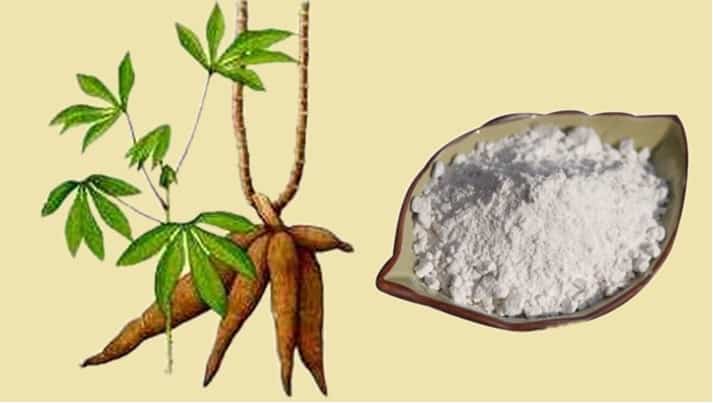
Cassava flour and tapioca come from the same plant and have many properties in common. However, they are somewhat different in taste and use.
It’s possible to use tapioca starch instead of cassava flour in everything from main dishes to baked goods.
Cassava flour is made from the whole white part of the cassava root. At the same time, tapioca starch comprises only the starch isolated from the cassava root. It is gluten-free.
2. Almond flour
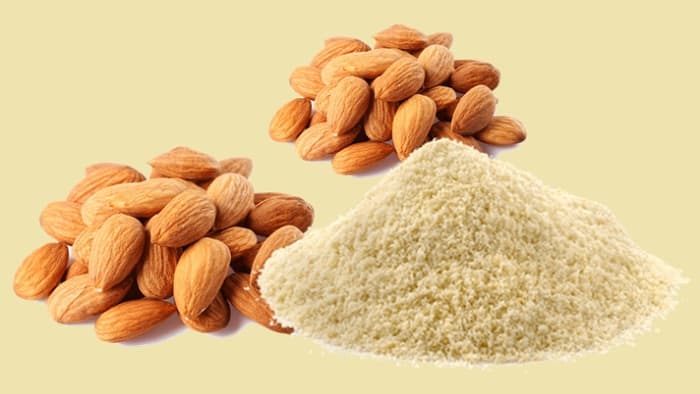
Almond flour or ground almonds is made from ground sweet almonds. It is usually made with blanched almonds.
Almond is gluten-free and contains a low amount of carbohydrates. It is most suitable for dessert recipes.
You can swap almond flour and cassava flour in a 1:1 ratio.
3. Rice flour
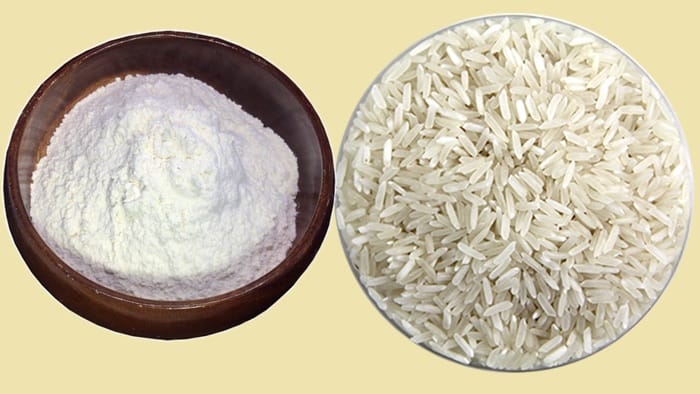
Rice flour is a form of flour made from finely milled rice. It is popularly used in Asian countries for preparing various rice-based snacks, savories, and baked goods.
Rice flour is gluten-free but contains a lot of carbohydrates.
You can easily substitute cassava flour with rice powder.
4. Arrowroot flour
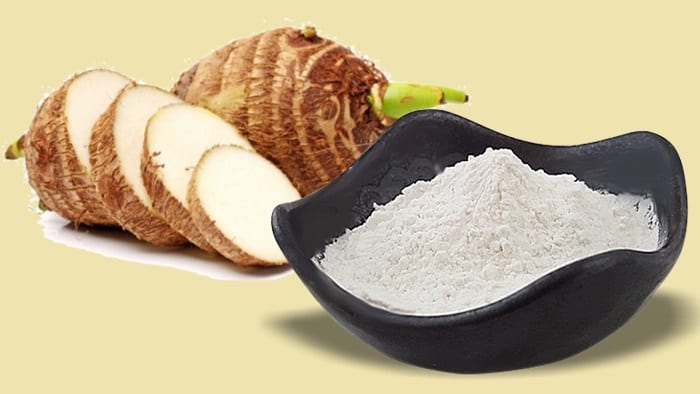
Arrowroot powder is commonly used in gluten-free and paleo-cooking. It’s extremely versatile in recipes.
It’s a grain-free starch that is used to thicken sauces, fillings and lighten up the texture. It works best in baked goods only when combined with other flour.
Arrowroot powder is a good alternative to high-starch flour like cassava and wheat flour.
5. Potato starch
Potato starch is the starch grains extracted from potatoes. The extracted starch is then washed out and dried to powder.
It’s mostly used in recipes as a thickener in delicacies like curries or meaty stews. You have to mix it with other flour for use in baked goods.
In some recipes, you can use potato starch instead of cassava flour.
6. Cornstarch flour
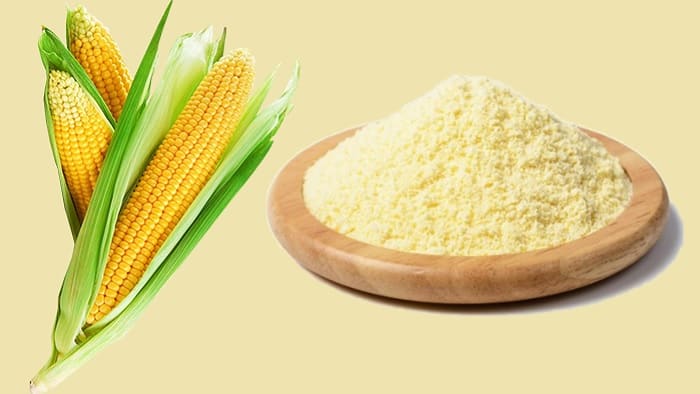
Corn starch or maize starch is the starch extracted from the corn grain. This starch is then dried and stored in powder form. In cooking, cornstarch is useful for thickening soups and sauces.
It is possible to substitute cassava flour with cornstarch flour as a thickening agent in recipes.
7. Spelt flour
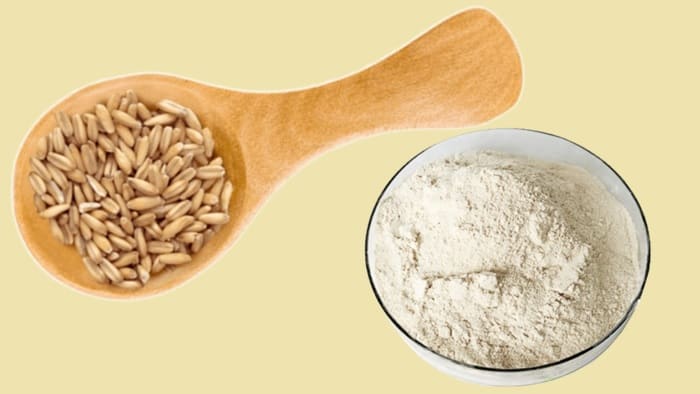
Spelt is a species of wheat. Spelt flour is an alternative to cassava and other standard flour used in baked goods.
It contains gluten properties and a lot of carbohydrates. Spelt flour has a mild nutty flavor and offers several health benefits.
8. Chickpea flour
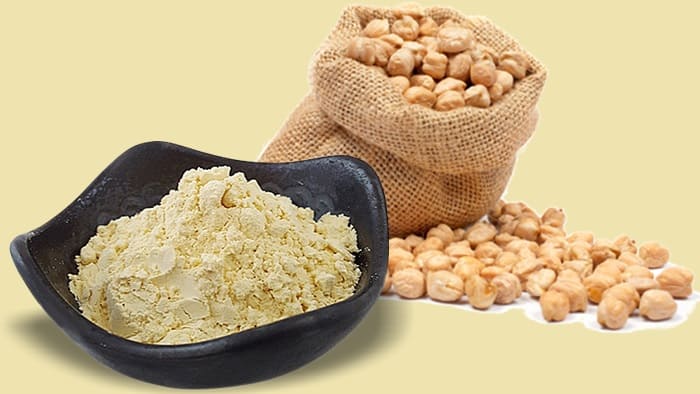
Chickpea flour is a pulse flour made from various ground chana dal known as Bengal gram. It is popularly used in South East Asian countries.
Importantly, it is gluten-free flour with good nutritional benefits to health.
Certainly, chickpea flour is a good alternative to cassava flour in baked goods recipes.
9. Masa harina
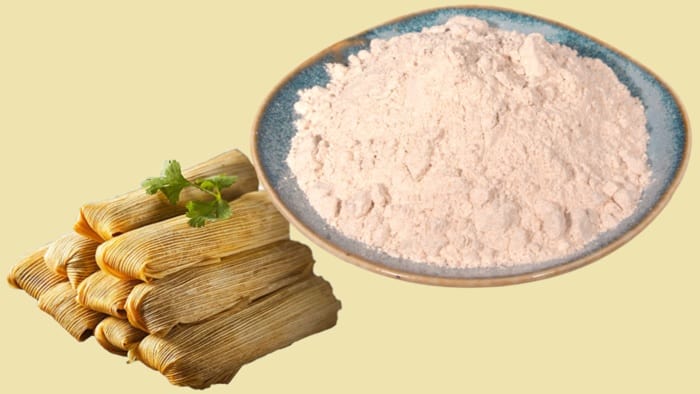
Masa harina is a soft flour from finely ground hominy or dried corn kernels. Before turning it into powder, corn kernels are cooked and soaked in lime water.
This gluten-free flour is a popular ingredient in a few Latin American cuisines. Masa harina is a possible alternative to wheat and cassava flour with its pleasantly sour flavor.
10. Oat flour
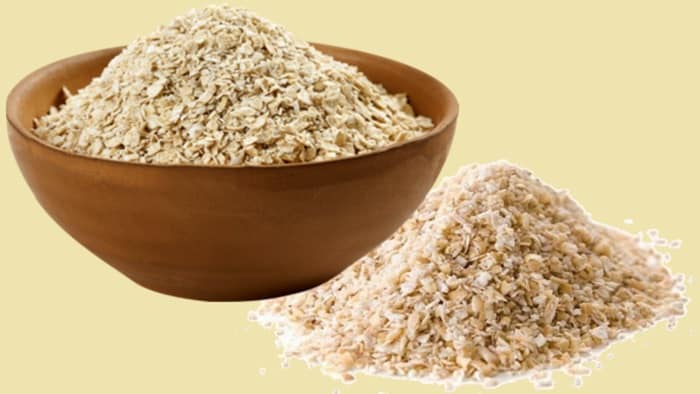
Oat flour is whole-grain flour made from rolled oats. This gluten-free flour contains many nutrients. It’s also a protein-rich diet beneficial to vegetarians.
Oat flour is a good alternative to cassava flour in pancakes, muffins, brownies, and cupcakes recipes.
Frequently Asked Questions
Can I substitute coconut flour for cassava flour?
Coconut flour and cassava flour are two very different types of flour with distinct properties. Substituting one for the other may yield different results in a recipe. They have different absorption rates, textures, and flavors. In general, coconut flour absorbs more liquid than the latter. So if you substitute coconut flour for cassava in a recipe, you must increase the liquid ingredients.
Can I substitute all-purpose flour for cassava flour?
All-purpose flour is typically from a blend of soft and hard wheat. It is one of the most versatile substitutes for cassava flour in many recipes. It can thicken your soups, gravies, and sauces. You also use this regular flour in all baked goods, such as cookies, cakes, pancakes, breads, and waffles. However, substituting all-purpose flour may not work if you are making a gluten-free recipe that specifically calls for cassava flour. You can usually use cassava flour in a 1:1 ratio when substituting wheat flour or all-purpose flour,
Final Thought
A good flour must be characterized by water absorption, tolerance to mixing, and dough stability. For health reasons, good flour should be gluten-free with a low-calorie content.
When you choose cassava flour alternatives, give preference to nutritional benefits and taste.
We believe arrowroot, oat, and almond flours are the healthiest alternatives to cassava flour.
Read next:
Article source:
- The International Journal Of Food Science: Effect of Cassava Flour Characteristics on Properties of Cassava-Wheat-Maize Composite Bread Types
- Cassava
- Cassava: Biology, Production, and Utilization
